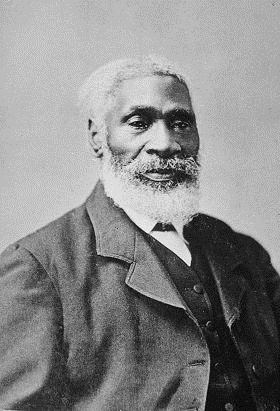Maryland’s ‘Reluctant’ Fugitive: Josiah Henson
Josiah Henson was an abolitionist, author, and a minister, whose life story is thought to have inspired Harriet Beecher Stowe’s Uncle Tom’s Cabin (1852). Henson was born into slavery in Maryland in 1798 but eventually escaped to Canada with his wife, Nancy, and their children in 1830.
Henson chose not to escape from slavery when the opportunity first presented itself in 1825. Ordered by his master, Mr Riley, to transport himself and a group of his fellow bondspersons from Maryland to Kentucky, Henson encountered a group of free black persons in Ohio, who encouraged him to liberate himself and the group. Henson’s sense of loyalty and duty to Riley deterred him from doing so. In the narrative, The Life of Josiah Henson (1849), Henson recalls:
‘The idea of running away was not one that I had ever indulged. I had a sentiment of honor on the subject…which I would not have violated even for freedom.’
In the years following, he regretted this decision. The final straw came in 1828 when Henson agreed to purchase his freedom from Riley, only for his enslaver to steal his life savings, including his earnings as a preacher. As the ‘iron selfishness’ of slavery became more obvious and as the guise of his ‘heartless’ master’s paternalism unravelled, Henson grew increasingly rebellious and determined to escape.
On a ‘dark, moonless night…about the middle of September [1830],’ Henson signalled the rejection of his master and slavery, fleeing in pursuit of uncertain freedom with his family. So began a long and dangerous journey, with the family passing through New York before settling in Canada.
Henson would become a leading voice in abolitionist circles after his escape. He spoke candidly about his life in slavery at various speaking locations across the United States and Britain. Henson visited Britain in 1876/77, where he delivered multiple speeches including in Bristol.
